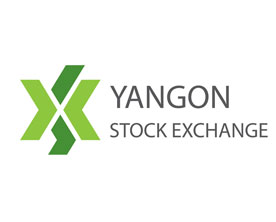Myanmar took a baby step towards capitalism last year by launching a stock exchange. It draws precious few investors. Weekdays at 9.30 am, within a venerable pile in the old commercial quarter, the security guard creaks opens the steel door to the trading room of the Yangon Stock Exchange (YSX), turns on the lights and organizes stacks of newspapers from the previous week. But the floor remains empty, and stock prices – all four of them – are unchanged on the ticker. Change, of many kinds, is coming late to Myanmar. Myanmar economy is going south steadily. The World Bank expects Myanmar economy’s growth to drop 6.5 per cent in FY 2016-2017. So far, only a fraction of the population has a bank account, and even fewer have experience investing in the country’s stock market, which has hardly budged since its debut in early 2016.
Perhaps, a German financial manager wants to change all that. Rudolph Rolles – known locally as Rudi – is the managing director of KBZSC, Myanmar’s largest securities trading firm. The moniker suits the relaxed Rolles, a 60-year-old from the German state of Saarland, and is well-suited to the informal style of Yangon’s financial circles. Recruited two years ago to develop Myanmar’s securities market, he’s finding the going tough. “There is no shareholder culture in this country,” Rolles said. “Almost no one here has a good understanding of what a stock exchange is, how it works and what advantages it offers.” He noted the financial world has been viewed with great skepticism since 2003, when a banking crisis caused severe economic disruption in Myanmar.
Rolles’ company has promoted an explanatory video about the stock market on Facebook, and is developing a smartphone app for stock trading, to make the market more accessible to individuals. The firm was the first financial service provider in Myanmar to prepare analyst reports on publiclytraded companies. It has also tried to educate potential investors about the capital market by organizing road shows outside the commercial city Yangon. “I wanted to be part of the history that is being made here,”Rolles said. Curiously, none of his employees at KBZSC had ever worked as stock brokers or investment bankers. “This sort of thing simply didn’t exist here,” he added.
The operators of the YSX seek to portray the stock exchange, which is open to the public, as a place of economic advancement. The word “success” is engraved into a golden bell hanging next to the price quotation board. A magazine with a list of the richest Asians is on display next to the entrance. A poster lists inspiring Warren Buffett’s quotes. There are also books with titles like “Market Wizards” and “How to make money in stocks – a recipe for success in good and bad times.” Still, the booming mood in the economy is hardly palpable at the stock exchange. Su Myat Sandi, a customer adviser at the Central Bank of Myanmar (CBM) Securities, runs a small stand in the trading room to recruit stockholders. Most of the time, however, she waits in vain. “Usually only one or two people come in every day to open an account,” she said. “And sometimes nothing happens at all.”
Early on, those who ventured into the YSX learned that trading comes with risks. During the first day of trading on March 25, 2016, stock in conglomerate First Myanmar Investment (FMI) closed at 31,000 kyat, or about $23. Since then, the stock has lost more than half of its value. FMI was the first company to float in Yangon, and only three other companies have been listed since – and all of their stocks have fallen sharply. Rolles blames those price drops on Yangon’s realestate bubble, which has upset several large companies. “In this environment, hardly anyone dares to pursue an Initial Public Offering (IPO),” he said . As long as the market remains tiny, it’s difficult to lure more investors. Eventually, the stock exchange may open up to foreign investors, a move that could jump-start trading (currently, only Myanmar citizens are allowed to buy stock in Yangon) but the government keeps postponing the date. Frustrated locals note that official schedules are rarely stuck to in Myanmar. One thing that’s on time is the end of trading. The stock exchange closes at 1 p.m. with a taperecorded gong – after three-and-a-half hours of virtually non-existent activity. The balance on the display board is sobering: The day’s turnover amounts to 60 million kyats, or about $44,440. As she packs up her things, Su Myat Sandi is optimistic: “Maybe it will be busier tomorrow.”










